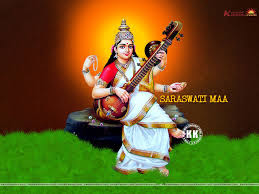Vedantasara-17.
161. But this sentence (“Thou art That”) meaning the identity of Consciousness characterized by immediacy or remoteness involves contradiction in one part only. Therefore it is not proper to abandon the other part as well and indicate something else by implication (Lakshana). Hence in this case Jahallakshana is not admissible.
162. Nor can it be urged: Just as the word “Ganga” (in the sentence in question), gives up its direct meaning and implies the “bank”, so may the words “That” and “Thou” (in the sentence, “Thou art That”) give up their direct meaning and mean by implication the contents of “Thou” and “That” respectively. So why should it not be a case of Jahallakshana ?
163. In that sentence the word “bank” is not mentioned, and therefore the a Lakshana here in order to indicate through either of them
the sense of the other (Thou or That).
164. Nor is Ajahallakshana applicable in this sentence as in the sentence, “The meaning, which is not explicit, can only be derived through implication (Lakshana). But in the other sentence (“Thou art That”), the words “That” and “Thou” are mentioned and their meanings are explicit; therefore it is not proper to use red colour is running.”
165. The literal meaning of that sentence, namely, the running of red colour, is absurd. This absurdity can be removed without abandoning the meaning of the word “Red” by interpreting it to imply a horse of that colour. Therefore in this case Ajahallakshana is admissible.
166. But here (in the sentence, “Thou art That”) the literal meaning, conveying an identical Consciousness associated with remoteness, immediacy, etc., is self-contradictory. If, without abandoning this meaning, any other idea connected with it be implied, still the contradiction will not be reconciled. Therefore, in this case Ajahallakshana is inadmissible.
167. Nor can it be urged: Either of the words “That” or “Thou” may exclude that portion of its meaning which conflicts with the other word and imply a combination of the other portion with the meaning of the other word (Thou art That). Therefore no necessity arises of admitting Bhagalakshana.
168. Because it is impossible to conceive the same word as indicating a part of its own meaning as well as the meaning of another word. Moreover, when the meaning is directly expressed by the other word, it does not require the application of Lakshana to the first word to indicate it.
169. Therefore, as the sentence, “This is that Devadatta”, or its meaning, on account of the contradictions involved in one part of their import, viz., Devadatta as existing in the past and in the present, implies, by abandoning the conflicting portion which has reference to time, only the non-conflicting portion, viz., the man Devadatta – similarly, the sentence, “Thou art That”, or its meaning, on account of the contradictions involved in one part of their import, viz., Consciousness characterized by remoteness and immediacy, implies, by abandoning the conflicting portion which has relation to remoteness, immediacy etc., only Absolute Pure Consciousness which is common to both “Thou” and “That”.
170. Now is being described the meaning of the sentence, “I am Brahman” (Br. Up. I-4-10), expressive of intuitive experience.
Continues...



.jpg)
Comments